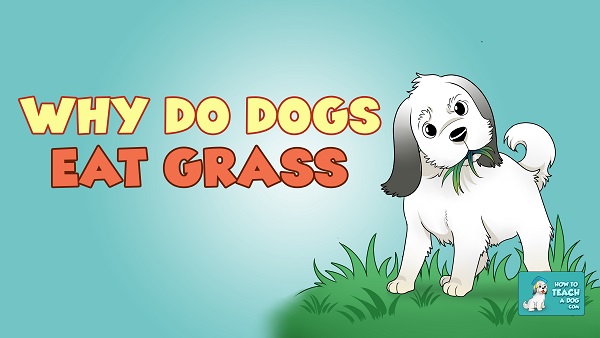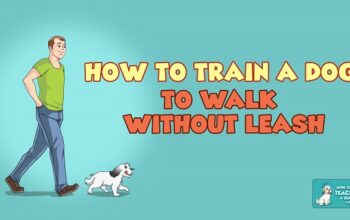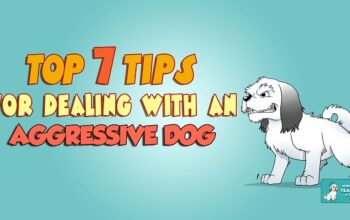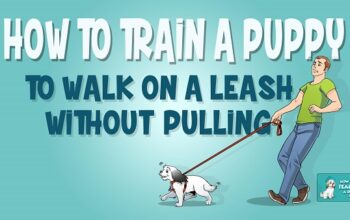
Everyone has seen their dog do it – munching away at the nice green lawn as if they were a cow and not a canine. Some dogs take a quick munch as they pass by on a walk while others seem to crave every ounce they can get.
So, why do dogs eat grass?
According to experts, dogs are omnivores and can receive nutrition from a variety of sources. This includes meats, grains, fruits and vegetables. In ‘the wild’, feral dogs will hunt for fresh meat and scavenge from carcasses and fruit that falls from trees. Some are even reported to eat roots.
Grasses are also a typical part of a wild canine’s diet. Grass contains a large amount of indigestible fiber that is only truly nutritious to animals like ruminants. Unlike dogs, ruminants like sheep and cattle have microorganisms in their gut that convert indigestible fibers into digestible ones.
These indigestible fibers do have a role in canine nutrition, but in small amounts. This type of fiber can help keep your dog “regular” and promote good digestion.
There are a few of theories and myths surrounding this habit:
1. Digestive and Airway Problems
Some people speculate that dogs eat grass because they have digestive problems. The theory is that if they have discomfort, eating the grass will alleviate this feeling.
Eating grass is typically not a symptom of a greater digestive problem, but it can be in certain cases. Most owners notice other symptoms of disease before the grass-eating starts or increases.
If your dog suffers from a chronic “sensitive stomach”, diarrhea, inflammatory bowel disease or pancreatitis, he may eat more grass than other dogs.
Eating too much plant material can actually cause digestive problems! Many owners report that their dog will munch on grass and then vomit afterwards. It is thought that this vomiting is from stomach irritation brought on by eating rough grass.
Eating grass and other woody materials such as sticks can predispose dogs to airway and digestive inflammation. If too much woody material is ingested, it can be difficult for the dog to pass it. Intestinal blockages are painful and can be life-threatening if not treated quickly. If you think your dog has consumed too much, vomits frequently after eating a large amount of woody or grassy vegetation, or otherwise seems unwell, contact your veterinarian as soon as possible.
In California, airway obstruction with foxtails is associated with eating grass. While dogs are sniffing around and munching on grass, they can inhale foxtails or sharp pieces of grass. The foxtail then burrows into the delicate tissues in the nose or oral cavity.
Many of these cases present to the veterinarian after eating grass and they have a bloody nose, are coughing, have excessive drooling or retching. Others may inhale a blade of grass and not have issues for many weeks or even months. These dogs sometimes develop discharge from one nostril or excessive sneezing. Heavy sedation is often required for a thorough examination of the nose and the back of the mouth. Endoscopy is helpful, as it can be difficult to see up into the tiny nasal passages in certain dogs.
2. Parasite “cleansing”
Young dogs are more likely to ingest plant material and are also more likely to have intestinal parasites. The theory is that whole plant material, like grass and leaves, can help to “scour” the intestinal tract and help remove parasites.
It is worth noting that eating grass can also expose your dog to parasites, which then cause digestive problems. If your dog eats grass in an area with lots of dog traffic, the grass is easily contaminated with fecal material containing viruses, intestinal parasite eggs or larvae. Wildlife in the area can also spread disease that can make your dog sick. One must then ask, which came first, the worm or the egg?
3.Behavior Problem
Grass eating can be a symptom of a bigger behavioral issue. Some dogs eat grass because they are bored, anxious or have an “obsessive-compulsive” type behavior disorder. Dogs that are housed outdoors with no toys and little human or canine interaction sometimes “pass the time” by munching on grass, sticks or other vegetation.
Many of these dogs are difficult to walk on a leash or keep under control while outdoors, because they are focused on seeking out grass.
Regular training can help to break your dog of this obsession. It can involve keeping their attention with a highly-desired treat or toy. While you are out with your dog, frequently reward him with small treats.
This will help not only to distract him from grass-seeking, but also positively reinforces him paying attention to you. The goal is to have your dog more interested in interacting with you instead of obsessing over grass.
If your dog seems “obsessed” with eating grass, speak to your veterinarian, trainer or veterinary behaviorist about how to best correct this.
4. Nutritional Deficiencies
Another myth is that dogs eat grass due to nutritional deficiencies. While this has not been proven or disproven, the majority of dogs in the Western world eat nutritionally balanced, commercial dog foods. As mentioned previously, grass is not that nutritious for dogs, so eating it doesn’t provide much benefit.
When animals eat non-food items, this can be called pica. It is commonly a sign of a nutritional deficiencies, especially when dogs eat rocks or soil. Grass eating may be ‘pica’ in some circumstances.
Your dog may eat grass in order to “supplement” his diet with fiber. Dogs that eat unbalanced diets, high-protein, grain-free or raw diets sometimes will eat grass. Is it due to a lack of fiber in the diet? Depending on the diet, it is quite possible.
‘Normal’ Grass Eating Behavior
Every pet owner has asked their veterinarian, why does my dog eat grass? If he’s not sick, is he just acting weird? The response from expert veterinary behaviorists is simple: It’s actually a normal behavior.
Eating grass is a normal behavior for dogs and we don’t fully understand why they do it. Eating grass on a weekly or even daily basis is considered normal.
Eating grass rarely means that something is wrong with your dog. In a survey done by University of California – Davis Veterinary School in 2008 showed that the majority of dogs that ate grass regularly were normal and otherwise healthy.
Prevention
If your dog’s grass munching is a problem, it is best to keep him from over-indulging. The best way to prevent grass-eating is to keep a close eye on your dog. Walking him on a very short leash and distract him with treats every time they try to eat grass. Don’t allow your dog to roam off-leash if he is prone to ‘grazing.’ If you live in an area with foxtails, avoid them as much as possible.
If the grass-munching happens occasionally, don’t worry, there’s likely nothing wrong with your dog.
Since grass-eating behavior has been preserved through domestication, it may serve some biological purpose we have yet to discover. We are always learning more in the field of animal health, so the next time you see your veterinarian, feel free to ask “why does my dog eat grass?” The answer might surprise you.


